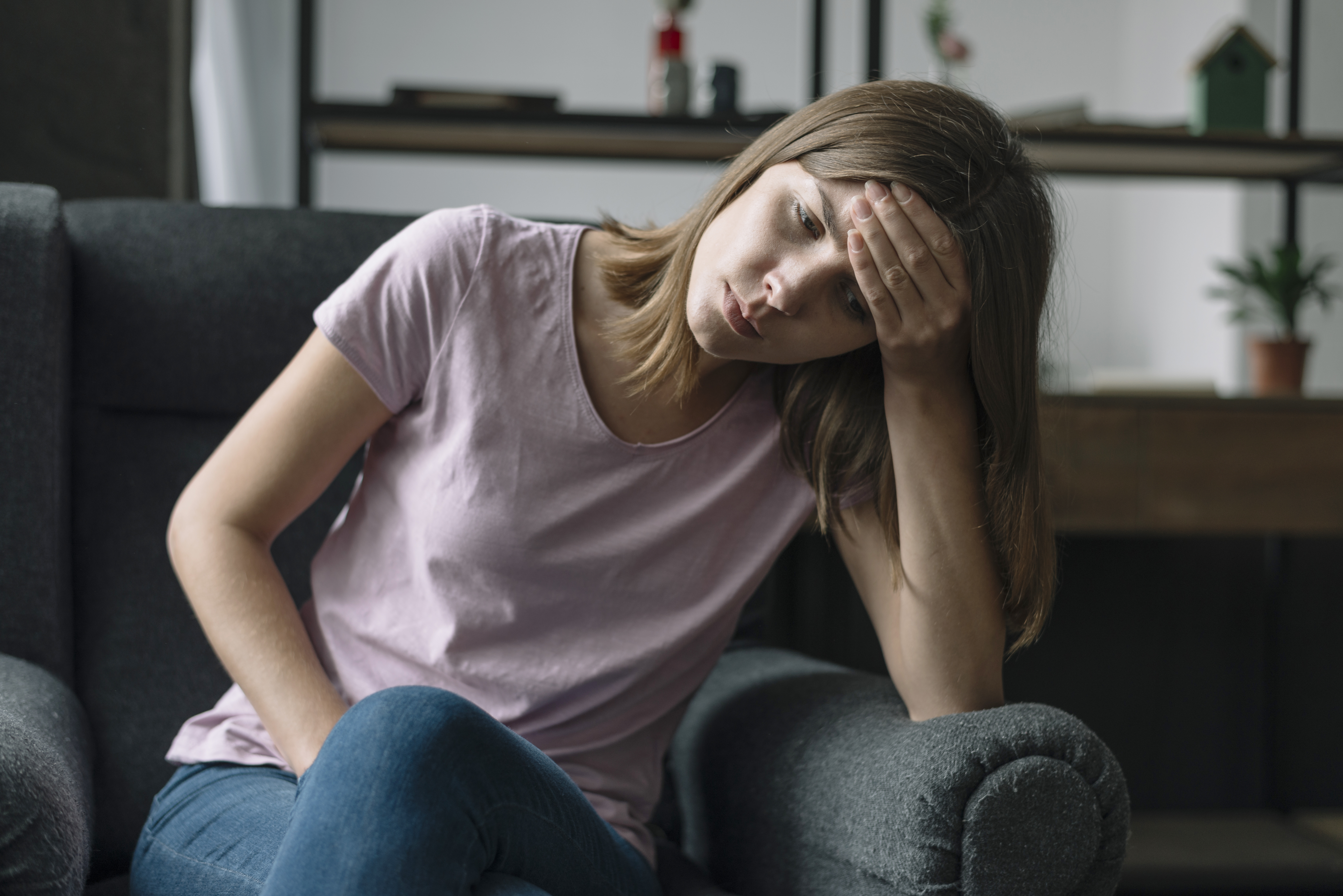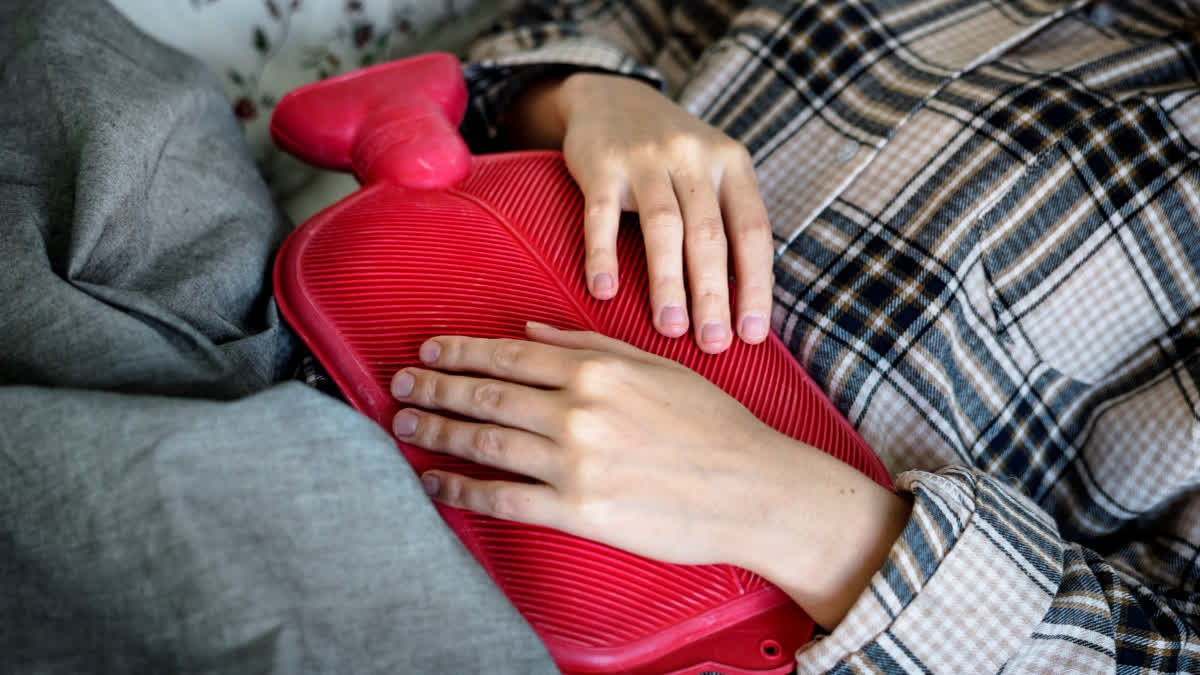Menstrual pain, also known as dysmenorrhea, is a common concern among women, and its intensity can vary significantly from one individual to another. And a recent study done by a team of researchers from China and the UK have noted that depression can have a significant impact on the intensity of the pain a woman experiences during menstruation.
In a new study published in Briefings in Bioinformatics, researchers from China and the UK have found that depression can increase the chances of a person experiencing menstrual pain, dysmenorrhea. Shuhe Liu, lead author of the study and a PhD student at Xi’an Jiaotong-Liverpool, University (XJTLU) and the University of Liverpool said, "We used a specialised technique called Mendelian randomisation to analyse genetic variation and identify specific genes that may mediate the effect of depression on menstrual pain. Our findings provide preliminary evidence that depression may be a cause, rather than a consequence, of dysmenorrhea as we did not find evidence that period pain increased the risk of depression."
What is the study about
The team analysed approximately 600,000 cases from European populations and 8,000 from East Asian populations and saw a strong link in both datasets. They also investigated the possibility that sleeplessness, often experienced by those suffering from depression, was a significant mediator between depression and dysmenorrhea. "We found that increased sleep disturbances could exacerbate menstrual pain. Addressing sleep issues may therefore be crucial in managing both conditions. However, more research is required to understand the intricate links between these factors,” says Liu.
This study further highlights the need for a holistic approach when treating mental health and reproductive issues. Liu says, "Mental disorders are often not considered when treating conditions such as period pain. Our findings emphasise the importance of mental health screening for people who suffer from severe menstrual pain."

How mental health impacts period pain
The results of the study provide evidence of a link between our neurological systems and the rest of the body. Doctor Priya Shikha Modi, consultant obstetrician and gynaecologist at Prakash Hospital in Noida explains that mental health issues like depression can play a significant role in amplifying menstrual discomfort. "Depression can have a significant impact on the intensity of the pain you experience while menstruating. It is because depression can negatively affect your hormones and chemicals in your body causing imbalance," explains Dr. Modi. She further elaborates that depression impacts the chemical makeup of the brain, particularly the neurotransmitters that control mood and pain. "When one suffers from depression, reduced serotonin can increase pain sensitivity; therefore, menstrual cramps become worse," adds the doctor.
Some of the symptoms of depression are poor sleep, fatigue, and increased levels of stress, which can enhance the perception of pain at menstruation. These symptoms negatively affect the woman's hormones and chemicals in her body causing imbalance. "Your body tends to release stress hormones like cortisol when you are depressed which can make the menstruation pain intense. Those suffering from depression, often find it difficult to fall asleep resulting in restless nights. This can worsen the pain while affecting their daily routine," explains Dr. Tanveer Aujla, senior consultant, obstetrician and gynaecologist at Motherhood Hospitals in Noida.
Additionally, depression can worsen mood swings during periods, creating feelings of frustration, irritation, agitation, and sadness. Dr. Aujla also emphaises the low levels of serotine that can make it extreamly challenging to cope with physical discomfort caused during the menstrual cycle. "That is why one needs to prioritise their mental health for the betterment of their health. If you are suffering from depression, then do not hesitate to seek help. Most of the people often avoid seeking help or counseling as it is considered a sign of weakness. Asking for help is the best thing one can do for themselves," suggests Dr. Aujla.
From a hormonal perspective, Dr. Modi explains that depression and menstrual cycles share a complex interplay of hormons. "Fluctuations in estrogen and progesterone during menstruation can already impact mood and stress levels. For individuals prone to depression, these hormonal changes may aggravate their psychological state, creating a vicious cycle that worsens both mood and pain symptoms," she elucidates.
While prioritising mental health and seeking help are primary steps to better the menstruating journey, Dr. Modi says lack of physical activity, poor unhealthy eating, and poor stress management can contribute to depression psychologically. "Therefore, it all leads to factors that deal with menstrual pains."
Expert guide to manage depression and period pain
Experts sugegst a comprehensive approach to women's health that addresses the physical and psychological aspects. "Menstrual pain that is related to depression, gynecological care needs to be complemented by psychological support," says Dr. Modi.

- You can try sharing your thoughts, and concerns with your family members, friends, relatives, loved ones, or a therapist. They can help provide better solutions while lowering your mental load.
- Try using a hot water bag, in case the cramps tend to worsen during periods. Incorporating mindful practices like deep breathing exercises can be helpful. They can declutter the chaos in your mind while making you calm.
- Doing yoga can not only be beneficial to improve your mental health but also lower the intensity of the period cramps. "Ensure that you eat healthy and well-balanced meals during the menstrual cycle," suggests Dr. Aujla.
- Your diet should contain essential nutrients like omega-3 fatty acids, vitamins, iron, zinc, magnesium, and protein.
- Avoid drinking caffeinated drinks during your periods as it can exacerbate your symptoms.
- Drink plenty of water throughout the day to maintain hydration.
Read More



